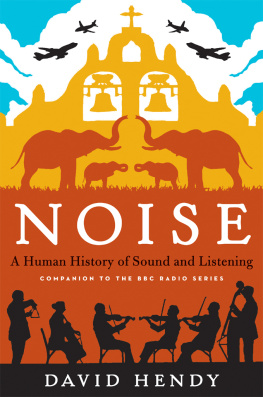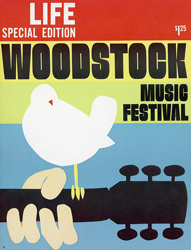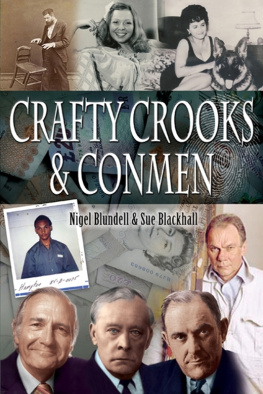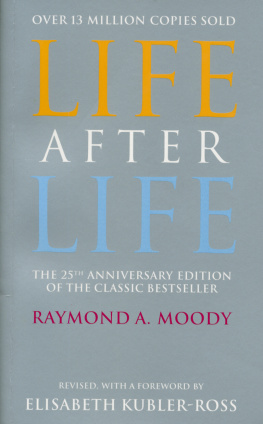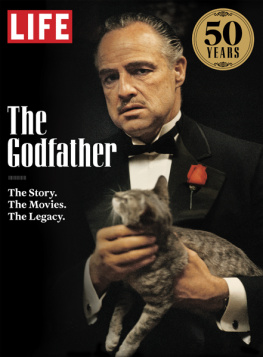Hendy - Life on Air
Here you can read online Hendy - Life on Air full text of the book (entire story) in english for free. Download pdf and epub, get meaning, cover and reviews about this ebook. year: 2007, publisher: Oxford University Press USA - OSO, genre: Detective and thriller. Description of the work, (preface) as well as reviews are available. Best literature library LitArk.com created for fans of good reading and offers a wide selection of genres:
Romance novel
Science fiction
Adventure
Detective
Science
History
Home and family
Prose
Art
Politics
Computer
Non-fiction
Religion
Business
Children
Humor
Choose a favorite category and find really read worthwhile books. Enjoy immersion in the world of imagination, feel the emotions of the characters or learn something new for yourself, make an fascinating discovery.

- Book:Life on Air
- Author:
- Publisher:Oxford University Press USA - OSO
- Genre:
- Year:2007
- Rating:3 / 5
- Favourites:Add to favourites
- Your mark:
- 60
- 1
- 2
- 3
- 4
- 5
Life on Air: summary, description and annotation
We offer to read an annotation, description, summary or preface (depends on what the author of the book "Life on Air" wrote himself). If you haven't found the necessary information about the book — write in the comments, we will try to find it.
Hendy: author's other books
Who wrote Life on Air? Find out the surname, the name of the author of the book and a list of all author's works by series.
Life on Air — read online for free the complete book (whole text) full work
Below is the text of the book, divided by pages. System saving the place of the last page read, allows you to conveniently read the book "Life on Air" online for free, without having to search again every time where you left off. Put a bookmark, and you can go to the page where you finished reading at any time.
Font size:
Interval:
Bookmark:
LIFE ON AIR
A History of Radio Four
DAVID HENDY


Great Clarendon Street, Oxford OX 2 6 DP
Oxford University Press is a department of the University of Oxford. It furthers the Universitys objective of excellence in research, scholarship, and education by publishing worldwide in
Oxford New York
Auckland Cape Town Dar es Salaam Hong Kong Karachi Kuala Lumpur Madrid Melbourne Mexico City Nairobi New Delhi Shanghai Taipei Toronto
With offices in
Argentina Austria Brazil Chile Czech Republic France Greece Guatemala Hungary Italy Japan Poland Portugal Singapore South Korea Switzerland Thailand Turkey Ukraine Vietnam
Oxford is a registered trade mark of Oxford University Press
in the UK and in certain other countries
Published in the United States
by Oxford University Press Inc., New York
David Hendy 2007
The moral rights of the author have been asserted
Database right Oxford University Press (maker)
First published 2007
All rights reserved. No part of this publication may be reproduced, stored in a retrieval system, or transmitted, in any form or by any means, without the prior permission in writing of Oxford University Press, or as expressly permitted by law, or under terms agreed with the appropriate reprographics rights organization. Enquiries concerning reproduction outside the scope of the above should be sent to the Rights Department, Oxford University Press, at the address above
You must not circulate this book in any other binding or cover and you must impose the same condition on any acquirer
British Library Cataloguing in Publication Data
Data available
Library of Congress Cataloging in Publication Data
Data available
Typeset by SPI Publisher Services, Pondicherry, India
Printed in Great Britain
on acid-free paper by
Biddles Ltd, Kings Lynn, Norfolk
ISBN 9780199248810
1 3 5 7 9 10 8 6 4 2
For Henrietta, Eloise, and Morgan.
This book attempts to reveal as fully as possible the inside story of Radio Fours history, and to set it against the backdrop of changing cultural life in Britain during the last decades of the twentieth century.
It is a story built largely on unprecedented access to the BBCs extraordinary collection of written archives. But this is a history of Radio Four, not the history: it is large but, of necessity, selective. Selective, in part, because the sheer output of Radio Four has been so vastsome 13,000 or so separate programmes a year, every year, for forty years: one can only pick examples and hope the choice proves fruitful. Selective, chronologically, because while it touches briefly on events back in 1939 and as recently as 2006, it concentrates overwhelmingly on the period from 1967 to 1997: the first thirty years of Radio Fours forty-year existence.
The basic reason for focusing on this period is that access to the BBCs archives is not unlimited. It has been possible for a vast range of documents between 1967 and 1987, for a smaller number between 1987 and 1997, and for none at all after that date. There are newspaper cuttings galore, of course, and they tell a good story. Indeed, newspapers have been vital to an understanding of events: they made or broke the reputation of programmes, they set the climate of critical debate, they shaped public attitudes, they stirred controversies. I make no apology for using them liberally: what they said mattered at the time. But to rely only on newspapers would be to tell only half the story. Something approaching a rounded version of events comes by reaching deep inside the BBC itself, by talking to those who worked there, and by seeing what they really saidand meantin their dealings with each other at the time. Many of these dialogues have been captured for us in the BBCs voluminous written documents. Jean Seaton, who now wears Asa Briggss old mantle as the Corporations historian, says of its archives that they illuminate contemporary history more vividly than any other. And so they do. Indeed, they tell far more than half the story: they take us to the heart of the BBCs thinking, and to its view of the wider world. I have not wished to tread too far beyond the firm grounding they provide.
Despite the enforced cut-off date, what remains is by far the largest part of Radio Fours story. Many of us have listened to Radio Four during this same period; we think we know a great deal about it. In a sense we are right: listening gives us what Seaton calls a kind of mapa feel for the programmes that worked, or did not work, that gave pleasure, or irritated. But memory is selective; sometimes it misleads; occasionally it is shaped by second-hand opinions and popular mythology imbibed unconsciously. Even at its best, it succeeds at telling us what happened rather than answering the more interesting questions of why something happened and how.
This book attempts some answers to those why and how questions: why Radio Four has survived despite so often being viewed as an anachronism, why it is that so many listeners claim it is stitched into the very fabric of their being, how it has been coaxed or cajoled into reflecting the changing times, how exactly it came to establish its reputation as a national institution or as an emblem of middle-class Britishness. The individual and combined thinking of those who actually worked for Radio Four on such matters has, up till now, been invisible. This is my attempt to bring it into the public domain.
Although this is not an official history, the whole project would have been impossible without access to the BBCs archives. My first debt is therefore to Jacqueline Kavanagh, Jeff Walden, and other staff at the BBC Written Archive Centre in Caversham. Robin Reynolds of BBC Heritage helped me to secure access to post-1979 material and the BBCs invaluable collection of oral history interviews with past employees. Shampa Hussein and Richard Jeffery at BBC Research Central also gave invaluable assistance with picture research.
For access to other material I must also thank: the British Library Sound Archives, Edinburgh University Library Special Collections, the Mass-Observation Archive at Sussex University Library, and the Bodleian Library, Oxford University. I am grateful, too, for access to the private papers of Monica Sims, Joy Whitby, and John Gray, and for access to unpublished work by John Grist, Hugh Chignell, and Matt Thompson.
I have spoken to a large number of BBC staff and others indirectly connected with Radio Four, both on and off the record. I wish to thank, especially, those who agreed to be interviewed formally, at some length, and sometimes repeatedly: Gerard Mansell, Joy Whitby, Ian McIntyre, Monica Sims, David Hatch, Michael Green, Helen Boaden, Mark Damazer, Philip French, George Fischer, Michael Mason, Jock Gallagher, John Tydeman, Richard Wade, Piers Plowright, Matt Thompson, Caroline Millington, Nick MacKinnon, and Gillian Reynolds.
I am especially indebted to Gillian Reynolds for reading early drafts of the book and making so many helpful comments. Others who did the same included Jean Seaton, Andrew Crisell, Hugh Chignell, Sally Feldman, Matthew Linfoot, John Tydeman, Gerard Mansell, Ian McIntyre, Monica Sims, David Hatch, Michael Green, Richard Wade, Caroline Millington, Joy Whitby, Liz Forgan, James Boyle, and Matt Thompson. They all saved me from error and offered valuable suggestions.
Several years of researching and writing depended on funding and personal support. I would therefore like to acknowledge the help of the following: the Leverhulme Trust, for the award of a Research Fellowship and Grant 20023; the Arts and Humanities Research Council, for granting a period of research leave in 20056; the Scouloudi Foundation in association with the Institute for Historical Research at the University of London, for a Historical Award in 2003; and, at the University of Westminster, Colin Sparks, Annette Hill, Peter Goodwin, Sally Feldman, Matthew Linfoot, and members of the Communication and Media Research Institute, who all, in different ways, helped relieve me of normal teaching and administrative duties at points between 2001 and 2006.
Next pageFont size:
Interval:
Bookmark:
Similar books «Life on Air»
Look at similar books to Life on Air. We have selected literature similar in name and meaning in the hope of providing readers with more options to find new, interesting, not yet read works.
Discussion, reviews of the book Life on Air and just readers' own opinions. Leave your comments, write what you think about the work, its meaning or the main characters. Specify what exactly you liked and what you didn't like, and why you think so.

